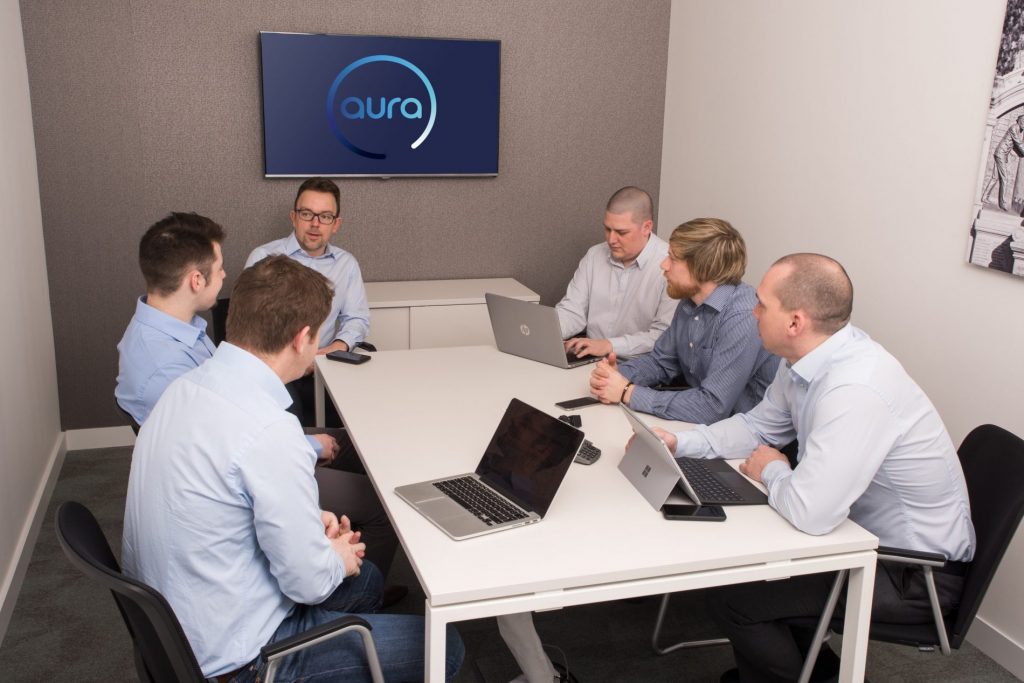Businesses get ready! By the year 2030 millennials will be around 75% of your workforce. This new workforce is the most ambitious yet, so keeping hold of them and keeping them happy is a fresh new challenge for business owners, says Steve Stokes from Aura Technology.
The term millennials refer to the generation of people born between the early 1980s and 1990s. They may have grown up not knowing what a koosh ball, slide rule or a laser disc was and they may have never experienced a world without internet, sat nav or social media.
A number of surveys on the millennial workforce have been conducted recently and the output of these is all very similar. The core findings are that millennials tend to not want to stay in jobs for longer than a year before looking elsewhere and they want to work for an organisation where they really feel like they belong. Although I’m sure there are a number of exceptions to this, it is a common theme with millennial workers and this frequent employee turnover is getting extremely costly to businesses.
Being born in the very early 1980’s, I am both a millennial and a business leader, so I’d like to offer some insight. I don’t believe that a table tennis table, PlayStation or beer fridge in the office is going to help with millennial retention. Whilst they might be fun, the real connection for a millennial to their employer has to be much deeper than this. Sorry to all who have recently kitted out their offices like Googleplex in Silicon Valley.
Core business values and culture is hugely important to millennials. I recall an interview I did recently with a guy who was much younger than me and it felt like I was the one being interviewed. I was grilled on the company values, ethos and existing workforce. It really felt like the interviewee was choosing us, not us choosing him.
Technology is very important to millennials also. Growing up with it, means they are typically very good users of tech and expect companies to keep their technology up to date. Surprisingly, a number of companies still have archaic process and procedures on mobile phone usage, complete bans from social media on company internet and no real remote or flexible working policies.
Steve Stokes from Aura Technology added there are three top tips to help with millennial retention:
Company culture really does matter
Good company culture and ethos attracts better talent and retains that talent. When staff feel a connection to the company they work for, they tend to stay longer. Creating a good culture can be difficult, and it often gets diluted as the company grows. If you get this part right however, you will have much better staff retention and a happier, more productive workforce. This is a really broad area on its own, so watch this space for future thoughts on developing and communicating a great company culture.
Promote from within
By showing your younger workforce that there is a ‘promote from within’ culture in your organisation, the carrot dangling of there being room to grow and develop can help keep hold of employees longer and offer longer term opportunity.
Don’t recruit externally unless you really have to. Promoting an employee from within your business can be cheaper than recruiting externally. If you have a culture of bringing people in externally for senior positions, ask yourself why and look to see how you can upskill your existing workforce to fill these roles in the future.
Also, think about different roles for people. Some of the best commercial team members I have worked with originated from the engineering teams.
Invest in new technology
Technology will help your employees be more productive and millennials expect to have up to date technology in the workplace. Provide them with the technology to help them do their jobs better and be more efficient.
Ensure you have mobile phone and internet usage policies that enable them to keep in touch with friends and their social feeds, but doesn’t hinder productivity. If you want you can use technology to manage your employees’ internet use and allow access only over break times and restrict access to specific websites or categories, but think carefully about not restricting your team too much.
Reading back these points above, I ask myself, is this much different to what most employees across all generations want from an organisation? Good company culture, room to grow and technology to make your working day more productive? I don’t think so. All good business leaders will tell you it is the basics that matter. These are some of the basics.
Find out more about Aura Technology at www.auratechnology.com
